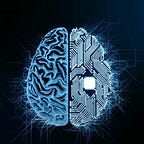EU Lawmakers Move Forward with Draft Law to Regulate Development of AI-Powering Products Such as ChatGPT
The European Union lawmakers have taken a step forward towards regulating the development of artificial intelligence-powered products such as ChatGPT. The regulation will ensure that AI systems are transparent, non-discriminatory, ethically sound, and secure.
Artificial Intelligence: A Historical Overview and Future Implications , get your copy Now
The European Parliament’s legal affairs committee adopted the draft report on EU Artificial Intelligence . The report calls for AI systems that are developed, deployed, and used in the EU to comply with a set of requirements. The proposed law aims to increase trust in AI and avoid any potential harm to humans or society.
One of the central issues that the draft law addresses is transparency. Developers of AI systems must provide information about how the system operates and how the outcome is generated. The proposed law also mandates that AI systems should not be used to create or perpetuate bias, and any discrimination based on race, gender, age, or disability is prohibited. Additionally, the law calls for human oversight of high-risk AI systems to ensure that they are in compliance with ethical principles.
ChatGPT, an AI-powered chatbot developed by OpenAI, has been praised for its natural conversational abilities. However, the bot has been criticized for its lack of transparency and ability to perpetuate bias. In 2019, OpenAI announced that it would not release the full version of its language model due to concerns about its potential misuse. While OpenAI has released an API for developers to use, the draft law would require more transparency and accountability from companies that develop such advanced AI systems.
The proposed law also addresses the issue of safety and security. High-risk systems, such as autonomous vehicles, should be designed with fail-safe mechanisms to prevent accidents and ensure user safety. AI-enabled products and services must be designed to withstand cyber attacks, data breaches, and other security threats.
The next steps for the proposal are for the European Parliament to vote on the draft law, followed by negotiations with the EU Council and Commission to finalize the legislation. The proposed law is expected to come into effect in 2023.
In conclusion, the proposed EU Artificial Intelligence Act is a significant step forward in regulating the development and use of AI-powered products such as ChatGPT. The regulations aim to ensure transparency, prevent bias and discrimination, guarantee ethical principles, and ensure safety and security. While ChatGPT has received criticism for its potential misuse, the proposed regulations will provide accountability and oversight for the development and deployment of advanced AI systems.
